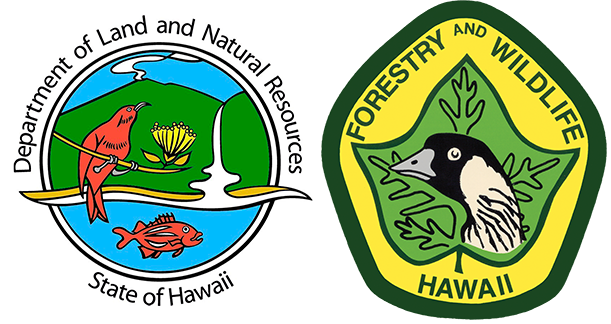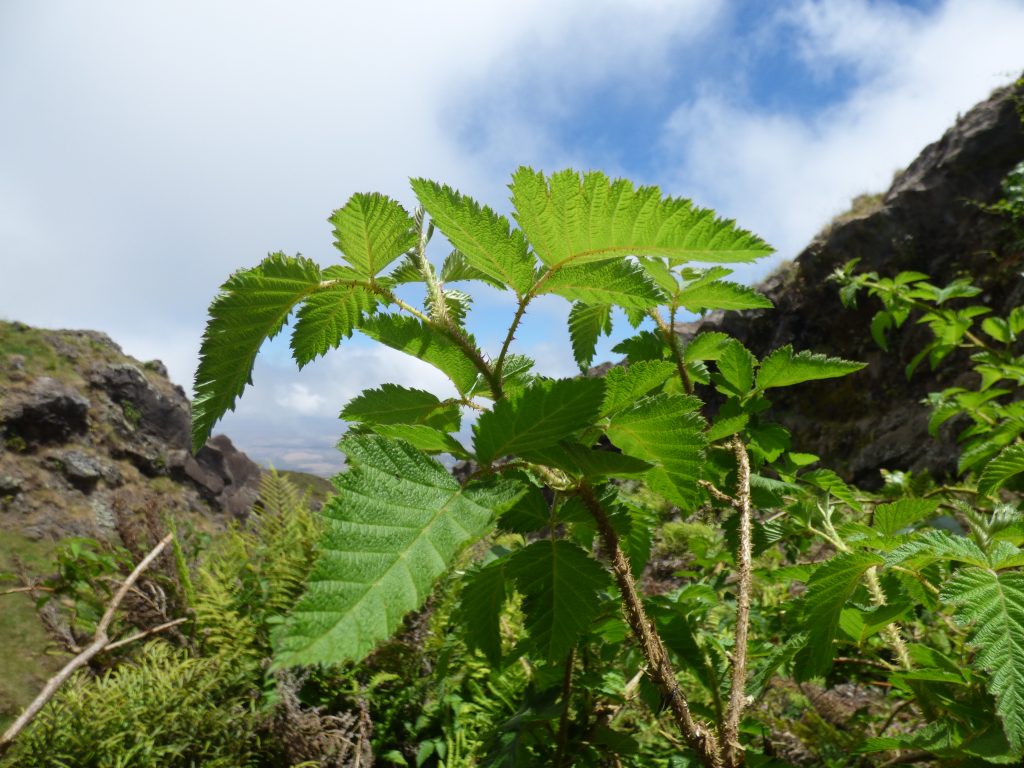‘Ākala
Names
- ʻŌlelo Hawaiʻi: ‘Ākala
- Common: Hawaiian blackerry/raspberry
- Scientific: Rubus hawaiensis
Conservation Status
- NatureServe Heritage Rank G2 – Imperiled
Species Information
‘Ākala is endemic to Hawaii and a part of the Rosaceae family. ‘Ākala is a deciduous shrub with arching canes 1.5 to 3 m (4.9 to 9.8 ft) long. The large red fruit (up to 4 cm or 1.6 in long and 2.5 cm or 0.98 in wide) is edible, but not often eaten because it is sweet and somewhat bitter. ʻĀkala translates to ‘pink’ in Hawaiian, the color of ʻākala berry juice. ‘Ākala berries were used to dye kapa (“Rubus Hawaiensis,” 2020). ʻ’Ākala were also used for medicinal purposes.
Distribution
‘Ākala is found on Kaua’i, Moloka’i, Maui, and Hawai’i.
Habitat
Mesic to wet forests at elevations of 600 to 3,070 m (1,970 to 10,070 ft).
Threats
- Competition with alien invasive plants
- Trampling by feral ungulates
References & Additional Resources
“‘Ākala, ‘Ākalakala, Kala.” Bishop Museum – Ethnobotany Database, https://data.bishopmuseum.org/ethnobotanydb/ethnobotany.php?b=d&ID=akala.
“Rubus Hawaiensis.” Plant Pono, 24 Jan. 2020, https://plantpono.org/pono-plants/rubus-hawaiensis/.


